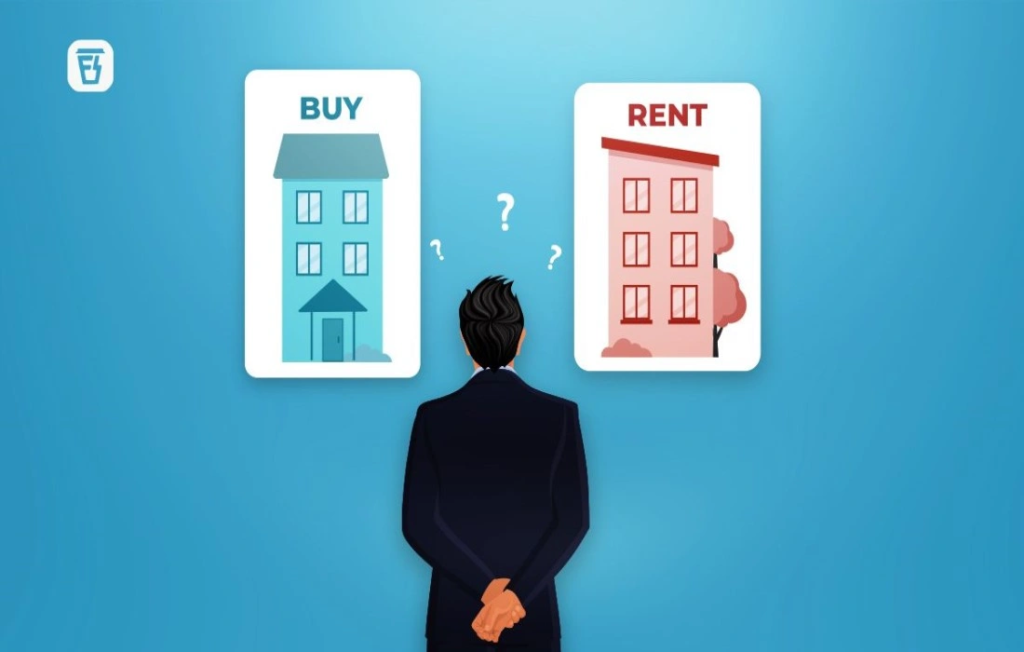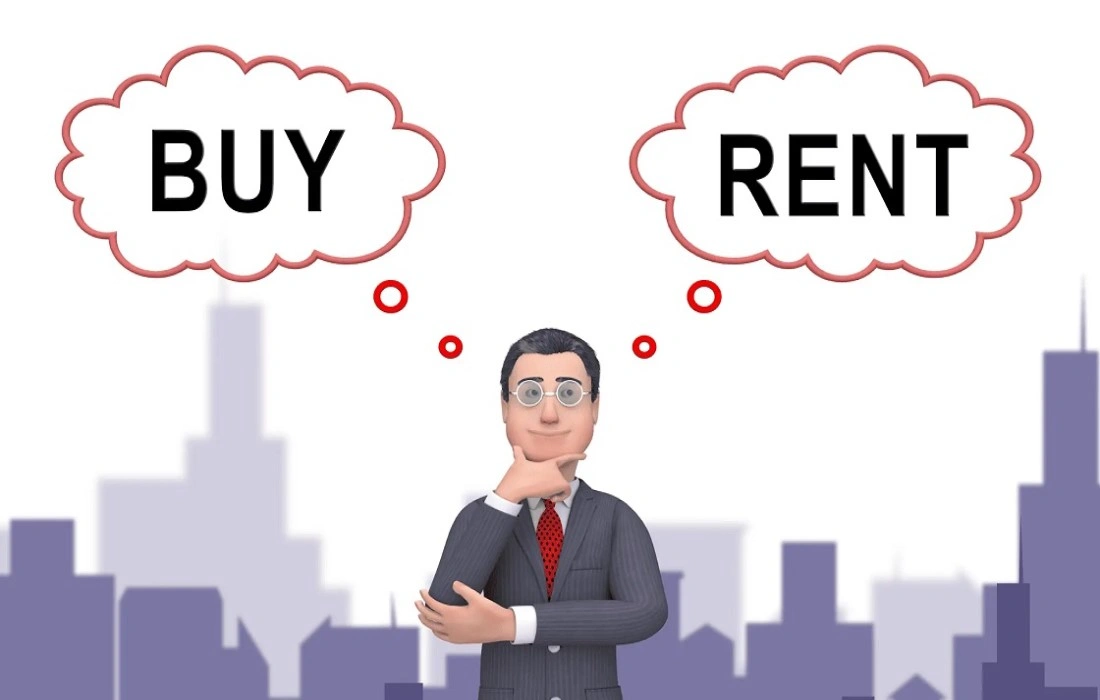Pune has evolved into a dynamic city, attracting IT professionals, students, and business owners alike. With this rapid urbanization, the question of whether to rent or buy property in Pune has become increasingly relevant, especially as the real estate market continues to grow. Both options come with their pros and cons, and making the right decision depends on various factors such as your financial situation, long-term goals, and lifestyle preferences. In this blog, we’ll break down the key points of renting versus buying in Pune to help you decide which makes more sense in 2024.
1. The Cost Factor: Upfront and Long-Term
One of the primary considerations when deciding between renting and buying is the financial commitment involved.
Renting
- Lower Initial Costs: Renting typically requires an initial security deposit (usually 2-3 months of rent) and a nominal monthly rent. This makes it an attractive option for those who may not have a large sum of money for a down payment.
- No Maintenance Costs: As a renter, you aren’t responsible for the upkeep of the property. Any major repairs or renovations are generally taken care of by the landlord.
- Monthly Rent: The cost of renting in Pune varies based on the area. For example, in prime locations like Kalyani Nagar or Hinjewadi, a 2BHK apartment might cost anywhere from ₹25,000 to ₹40,000 per month, while peripheral areas like Hadapsar or Pimple Saudagar offer more affordable rents, starting from ₹15,000-₹25,000 per month.
Buying
- High Upfront Investment: Purchasing a home in Pune requires a significant down payment (usually 10-20% of the property value), along with registration fees, stamp duty, and other miscellaneous charges. For a property worth ₹80 lakh, this could mean an initial investment of ₹8-20 lakh, plus additional costs.
- EMIs and Interest Rates: While buying a home builds equity, the cost of monthly EMIs (Equated Monthly Installments) can be substantial, especially in the current market where home loan interest rates are around 8-9%.
- Appreciation Potential: One advantage of buying is the potential appreciation of property value. Pune’s real estate market has grown steadily over the years, and areas like Baner, Wakad, and Kharadi are expected to see further appreciation in the coming years.
2. Flexibility vs Stability
Another major consideration when deciding between renting and buying is the lifestyle flexibility or stability you seek.
Renting
- Flexibility: Renting offers the flexibility to move easily. If your job requires frequent relocations or if you enjoy exploring different parts of the city, renting allows you to shift homes without being tied down by ownership.
- Short-Term Commitment: With rental agreements typically lasting 11 months, renting provides the opportunity to reassess your living situation annually without any long-term financial obligation.
Buying
- Long-Term Stability: Owning a home provides a sense of permanence. If you’re settled in Pune and plan to stay for many years, buying can offer long-term financial security and stability.
- Customization: As a homeowner, you have the freedom to modify and personalize your property. Whether it’s renovations, upgrades, or aesthetic changes, owning allows you to shape your living space to suit your tastes and needs.
3. Real Estate Market Trends in 2024
The real estate market in Pune has shown steady growth, driven by demand from IT professionals, students, and businesses. However, 2024 may bring certain trends that could influence your decision to rent or buy.
- Price Appreciation: Real estate experts predict moderate price appreciation in key areas like Kharadi, Baner, and Hinjewadi due to ongoing infrastructural developments and the growing IT sector. If you’re considering buying, this could be a good time to invest as property values are expected to rise steadily.
- Hybrid Work Models: With the IT sector shifting towards hybrid work models, the necessity to live close to office locations may decrease. This could lead to a slight stabilization or dip in rental demand for central IT hub locations, making renting more affordable in areas like Hinjewadi and Kalyani Nagar.
- Affordable Housing Projects: Several new affordable housing projects have been launched in Pune’s peripheral areas like Tathawade, Ravet, and Undri. If you’re looking to buy, these projects may offer attractive deals with lower property prices and modern amenities.
4. Tax Benefits and Financial Incentives
Financial incentives can also tip the scale when it comes to renting versus buying.
Renting
- No Major Tax Benefits: While renting doesn’t offer any direct tax advantages, if you’re a salaried employee, you can claim a House Rent Allowance (HRA) deduction as part of your income tax return. This deduction helps offset some of your rental costs.
Buying
- Tax Benefits on Home Loans: As a homeowner, you can avail of tax deductions on both the principal and interest components of your home loan under Sections 80C and 24(b) of the Income Tax Act. This can lead to substantial savings over time.
- Asset Building: By buying property, you’re building an asset that may appreciate in value, which can also serve as a financial security net or even a potential rental income source in the future.
5. Which Makes More Sense in 2024?
Whether renting or buying makes more sense in Pune largely depends on your individual financial situation, long-term plans, and the current market conditions.

When Renting is the Better Option:
- You prefer flexibility and are not yet settled in Pune.
- You don’t want to commit to a large financial investment like a down payment and EMIs.
- You expect to relocate in the near future or prefer living close to work without the burden of property ownership.
When Buying is the Better Option:
- You’re financially ready to invest and plan to stay in Pune for the long term.
- You want to build equity over time and benefit from potential property appreciation.
- You’re looking for stability and want the freedom to customize your living space.
6. Conclusion
Both renting and buying have their advantages and challenges. In 2024, with Pune’s thriving real estate market and evolving lifestyle needs, the decision largely hinges on your financial readiness, long-term goals, and the level of flexibility or stability you seek. Renting offers flexibility and lower upfront costs, making it ideal for those who are still exploring the city or not ready for a long-term commitment. On the other hand, buying is a valuable investment for those looking for long-term stability and financial growth.
Ultimately, the best choice will depend on your personal circumstances, so weigh the pros and cons carefully before making your decision.





Join The Discussion